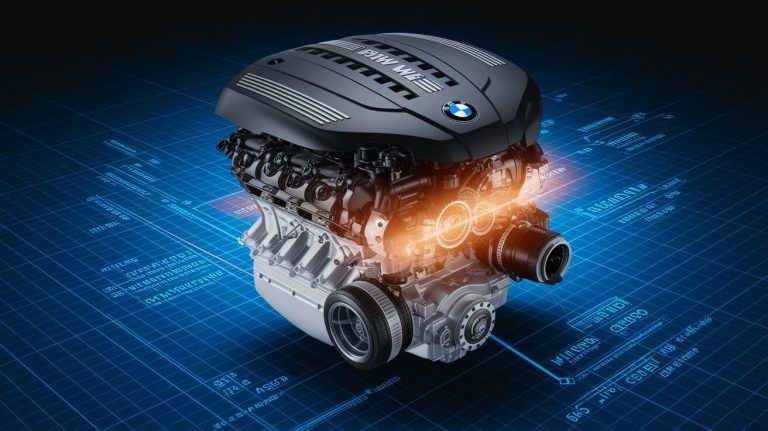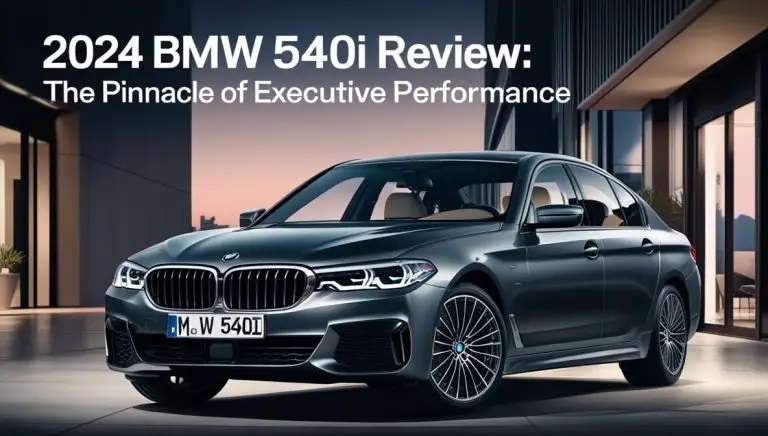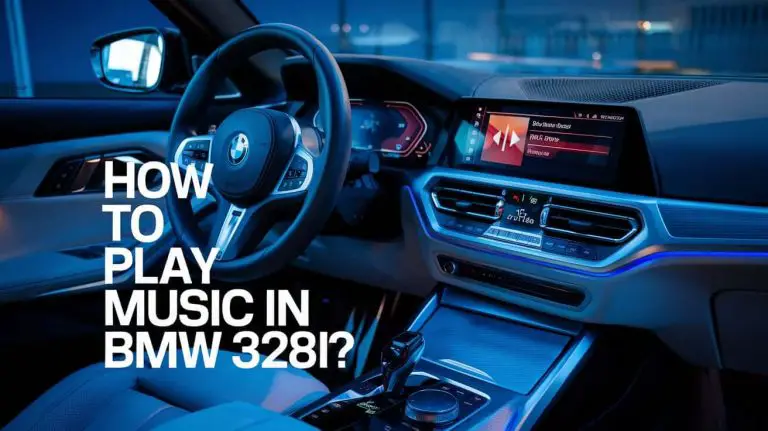Does BMW Own or Is Affiliated with Toyota Car Brand?
In this article, we’ll take an in-depth look at the relationship between BMW and Toyota. Do the German and Japanese automakers have a strategic partnership? Have they merged into one company? Or are BMW and Toyota completely independent of each other?
We’ll provide a definitive answer upfront—No, BMW does not own Toyota. The two automakers have collaborated on certain vehicle projects, but they remain separate, independent companies focused on their own brands.
To fully understand their arrangement, we’ll overview the various brands, models, partnerships and possible future developments between the BMW and Toyota groups. Grasping the car brands each one owns provides helpful context.
BMW Brands and Models
The BMW Group owns three primary automotive brands:
- BMW – The core BMW brand offers luxury performance vehicles, including sedans, SUVs, coupes, convertibles, and electric cars. Top-selling BMW models include the 3 Series, 5 Series, X3 SUV and X5 SUV.
- MINI – Part of the BMW group since 2001, MINI focuses entirely on small hatchbacks and convertibles. The Cooper is MINI’s most popular model.
- Rolls-Royce – BMW has owned the ultra-luxury Rolls-Royce brand since 1998. Hand-built Phantoms, Ghosts, and Cullinans can cost $300,000 to over $500,000.
In addition to autos, BMW also owns BMW Motorrad, manufacturing BMW-badged motorcycles. So within the BMW Group, the parent company controls some of the most prestigious performance brands across multiple transportation segments.
Toyota Brands and Models
The Toyota Motor Corporation oversees these primary automotive brands:
- Toyota – The Toyota brand offers mainstream to luxury vehicles sold globally. Best-selling Toyota cars include stalwarts like the Camry, Corolla, RAV4, Highlander, and various trucks.
- Lexus – Launched in 1989, Lexus develops luxury sedans, coupes, SUVs and hybrid models. The RX crossover and ES sedan rank among Lexus’ most popular vehicles.
Toyota also holds a stake in Japanese automaker Subaru, and a small stake in smaller Japanese automaker Suzuki. But unlike sprawling groups like Volkswagen, Toyota focuses mainly on growing its namesake and premium Lexus divisions.
Partnership Between BMW and Toyota
Now that we’ve outlined each company’s brands, let’s examine their partnership. BMW and Toyota began collaborating on automotive projects in 2012. The initial partnership had three major facets:
- Joint sports car development – BMW and Toyota agreed to co-develop a sports car platform, which ultimately resulted in the Toyota Supra and BMW Z4 sharing chassis components and BMW engines.
- Fuel cell technology – The companies partnered to research, develop and produce fuel cell vehicle systems. Fuel cell cars like the Toyota Mirai convert hydrogen to electricity to power vehicles with zero emissions.
- Lithium-ion batteries – BMW and Toyota teamed up to develop next-gen lithium-ion and solid-state batteries for green vehicles.
The sports car collaboration garnered the most attention from enthusiasts. The fifth-generation Toyota Supra launched for 2020 leans heavily on BMW foundations.
Under the sheet metal, the Toyota Supra utilizes:
- BMW’s CLAR platform used in the BMW Z4
- BMW B58 straight-six engine
- Eight-speed automatic transmission from BMW
Toyota explained the reasoning behind tapping BMW for Supra mechanicals—reviving the Supra nameplate required a inline six-cylinder engine. This layout was non-negotiable based on surveys of diehard Supra fans.
Rather than spend heavily developing a unique inline six for a relatively low-volume sports car, Toyota entered talks to source components from BMW. The strengths of both automakers could thereby combine into an all-new Supra.
What the Partnership Means
The deeper collaboration between BMW and Toyota carries a few meaningful implications:
- Technology sharing – BMW and Toyota trade intellectual property and co-develop future-oriented tech on fuel cells, batteries, safety systems and autonomous driving. Consumers benefit from improved technology faster.
- Cost savings – Partnerships enable significant cost savings from shared engineering and platforms. This allows delivering competitive models at lower prices.
- Independence preserved – While collaborating on select projects, BMW and Toyota remain strategically independent. Each company retains focus on nurturing their legendary brands and models.
So in summary—BMW and Toyota formed selected partnerships to accelerate innovation, cut costs and access specific technology or platforms from one another. This allows each auto giant to play to their strengths while delivering better vehicles at lower prices to the benefit of consumers. Think of it as two rival families agreeing to mutually share lawnmowers or snowblowers.
But due to the limited nature of their cooperation, BMW cannot exercise any control or ownership stake in Toyota.
Other Auto Industry Partnerships
The partial convergence of BMW and Toyota mirrors similar partnerships reshaping the auto scene:
- In April 2022, Honda and Sony shocked the industry by announcing plans for a new electric vehicle brand called Afeela. Sony brings software and sensory expertise while Honda contributes engineering and manufacturing.
- The Renault-Nissan-Mitsubishi Alliance forms a strategic partnership between France and Japan. While benefiting from economies of scale, they continue operating as independent automakers.
- Ford and Volkswagen have collaborated on electric and autonomous cars. Porsche and Rimac joined forces on high-performance EVs. Strategic pairings allow pooling complementary strengths.
As legacy automakers pursue electrification and self-driving cars, partnerships provide competitive advantages. Companies can leverage partner capabilities missing from their skill set against disruptive threats from Tesla, Apple and Google.
Why a BMW Takeover of Toyota Seems Unlikely
Speculation about consolidation has occasionally suggested BMW absorbing Toyota via merger or acquisition. But several factors make Toyota seem an improbable target for a BMW takeover:
1. No business case or incentive – Why would BMW want to shoulder the massive responsibilities of integrating Toyota’s global production capacity, dealerships, employee base and business systems? Toyota’s scope as the world’s top-selling automaker far exceeds BMW’s aspirations. From a strategic perspective, there’s no apparent business case or incentive.
2. Risk of customer defection – Toyota commands fierce brand loyalty, especially in North America and Asia. Trying to impose BMW corporate culture or influence onto Toyota risked alienating these loyal buyers and sabotaging decades of brand building.
3. High regulatory barriers – Anti-trust regulators would never permit BMW to assume control of Toyota and its 29% U.S. market share. For perspective, a proposed merger between BMW and Mercedes-failed over competitive concerns. Acquiring gigantic Toyota has no chance of approval.
In effect, while Toyota makes for an useful collaborator, the idea of an outright BMW takeover faces too many financial, cultural and regulatory barriers to seem realistic.
What Does the Future Hold?
Rather than BMW acquiring Toyota, their partnership points toward selective collaboration benefitting both industry giants:
- More shared technology – Expect deeper cooperation on batteries, autonomous systems, connected services and mobility platforms. Each company concentrating on their specific expertise.
- Joint vehicle projects – Following the success of BMW-Toyota on the Supra-Z4 models, future sports cars or hybrid models could emerge from the partnership.
- Commitment to brands – With so much equity invested in their legendary brands, BMW and Toyota seem committed to preserving their identities by not over-integrating.
The future appears to hold targeted partnerships across high-cost areas like self-driving and carbon-neutral platforms. At the same time, healthy competition between the luxury German brand and mass-market Japanese brand will push more choice and innovation to buyers.
Conclusion
While no crystal ball can guarantee future moves, BMW and Toyota seem destined to remain independent automakers rather than combined companies. Their partnership only spans specific initiatives where collaborating makes economic and technological sense.
Through jointly developing sports cars like the Supra, or cooperating on batteries and fuel cells, BMW and Toyota aim to improve the vehicles they offer to customers. But their known projects have not led to BMW owning Toyota stock or securing a controlling interest in the Japanese auto giant.
With BMW and Toyota collectively selling over 15 million vehicles yearly, the maintained separation between these automotive titans will likely be welcomed by regulators and consumers alike. Each can continue nurturing the legendary brands, performance models and cutting-edge mobility tech they’re renowned for across global markets.
So while you may spot BMW engines powering select Toyota sports coupes, don’t expect a BMW takeover of their family of brands anytime soon. The strategic partners seem destined to continue driving forward in their own lanes for the foreseeable future.







